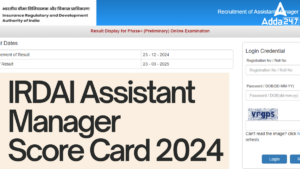IBPS Clerk Prelims is on its way and a lot of aspirants are heading towards new hopes with this upcoming opportunity. Thus, English Language can be an impetus for their success by helping them save crucial time and score good points in lesser time and effort. So, instead of boiling the ocean, try building up a strong vocabulary, an effective knowledge of grammar, and efficient comprehension skills so as to be on the ball to face this particular section. Here is a quiz on English Language being provided by Adda247 to let you practice the best of latest pattern English Questions for upcoming IBPS Clerk Exam.
Direction (1-15): Read each of the following sentences to find out if there is any grammatical error in it. The error, if any, will be in one part of the sentence. The number (A, B, C or D) of this part is your answer. If there is no error in the statement, then mark option (e) as your answer choice.
Q1. The militants open fire on (A)/ security forces late last night, (B)/ triggering a gun-battle in which (C)/ two ultras were killed. (D)/ No Error. (E)
A
B
C
D
E
Solution:
The given sentence talks about an incident that has happened in the past (last night). Hence there is an error in part (A) of the sentence – instead of ‘open’, ‘opened’ must be used.
Q2. All educational institutions including (A)/ colleges, higher secondary and primary (B)/ schools were closed in Srinagar district (C)/ as part in the precautionary measures. (D)/ No Error. (E)
A
B
C
D
E
Solution:
Part D is erroneous here.
‘...as part of the precautionary measures.’ will form the correct statement.
Q3. The increasing variations in rainfall, (A)/ frequent droughts and heat waves (B)/ along changes in evapotranspiration (C)/ tend to alter the hydrological balance. (D)/ No Error. (E)
A
B
C
D
E
Solution:
Part C has an error. ‘Along with’ is the correct phrase to be used in the sentence here.
Q4. A resilient ecosystem is one who (A)/ can absorb drought by increasing or (B)/ maintaining its efficiency to use (C)/ water to sustain its productivity. (D)/ No Error. (E)
A
B
C
D
E
Solution:
In part A of the given sentence, usage of pronoun ‘who’ is grammatically incorrect. In its place, ‘which’ must be used to make the sentence grammatically correct.
Q5. Replying to Anmol’s (A)/ question, Sakshi very (B)/ clearly said that (C)/ she preferred milk than tea. (D)/ No Error. (E)
A
B
C
D
E
Solution:
In the given sentence, the error is in part D. 'Prefer milk to tea' is the grammatically correct way of putting the giving statement.
Q6. When he returned home after school, (A)/ Harish was bursting with happiness as (B)/ he was chosen as the (C)/ class representative on his birthday. (D)/ No Error. (E)
A
B
C
D
E
Solution:
Part C is erroneous here. Adverb ‘as’ is not used with the verb ‘chose’
Q7. The captain of the DPS Football (A)/ Team along with the other (B)/ players were rescued from the (C)/ cave successfully by the Army. (D)/ No Error. (E)
A
B
C
D
E
Solution:
Part C has an error here. The helping verb will agree with the first noun (mentioned before along with) – therefore, in accordance with ‘The Captain’, ‘was’ should be used in place of ‘were’.
Q8. One must (A)/ keep his (B)/ promise no (C)/ matter what. (D)/ No Error. (E)
A
B
C
D
E
Solution:
The error is in part B and the correct statement would be –
One must keep one’s promise no matter what.
Q9. Nikki told Kiku, “If (A)/ I will come to your house, (B)/ you will not cook me Dal for (C)/ dinner, this time around”. (D)/ No Error. (E)
A
B
C
D
E
Solution:
The given sentence is an example of condition sentences. Here, part B is erroneous.
For such conditional sentences the correct structure is –
If + simple present, + simple future; Hence the correct statement will be as follows –
Nikki told Kiku, “If I come to your house, you will not cook me Dal for dinner, this time around”.
Q10. Train 18, the country’s first engine-less (A)/ train which is being regarded as a successor (B)/ to the 30-year-old Shatabdi Express, is set (C)/ to hit the tracks for trials on October 29. (D)/ No Error. (E)
A
B
C
D
E
Solution:
There is no error in the sentence.
Q11. The self-propelled train, fitted with (A)/ CCTV cameras, would has two executive (B)/ compartments in the middle with 52 seats each, (C)/ whereas trailer coaches would have 78 seats each. (D)/ No Error. (E)
A
B
C
D
E
Solution:
Part B has an error here. ‘Would’ is always followed by ‘have’ and never by ‘has’.
Q12. Strong monsoons in the Indian Ocean can induced (A)/ easterly winds that push Atlantic Ocean hurricanes (B)/ westward, increasing the likelihood that they will make (C)/ landfall in the Americas, according to a study. (D)/ No Error. (E)
A
B
C
D
E
Solution:
Clearly, part A has an error here. First form of a verb follows ‘can’ and hence usage of ‘induced’ is wrong. Instead, ‘induce’ must be used.
Q13. The Reserve Bank of India has released (A)/ guidelines for interoperable between (B)/ prepaid payment instruments (PPIs) (C)/ such as wallets and cards. (D)/ No Error. (E)
A
B
C
D
E
Solution:
In part B of the given sentence, ‘interoperability’ must be used in place of ‘interoperable’.
Q14. The direct tax base have significantly widened (A)/ in the last few years, according (B)/ to new back series data (C)/ released by the government. (D)/ No Error. (E)
A
B
C
D
E
Solution:
Very clearly, part A has a grammatical error here. ‘Direct tax base’ is a singular noun phrase and hence will take helping verb ‘has’ after it, rather than ‘have’.
Q15. I would not say depreciation of rupee is a cause for (A)/ worry per paisa, in the sense that we have (B)/ enough resources but the movement in rupee’s value in (C)/ the last couple of months has been a matter of concern. (D)/ No Error. (E)
A
B
C
D
E
Solution:
Part B has a contextual error here. ‘per paisa’ is incoherent with the given sentence and instead the phrase ‘per se’ must be used.
Per se – by itself; intrinsically
You May also like to Read:
- Tips and Tricks To Solve Reading Comprehension
- Tips and Tricks to Solve Coherent Paragraph| Odd Sentence out
- 5 Tips and Tricks To Solve New Pattern Cloze Test






 The Hindu Review October 2022: Download ...
The Hindu Review October 2022: Download ...
 IRDAI Assistant Manager Score Card 2024 ...
IRDAI Assistant Manager Score Card 2024 ...
 IRDAI Assistant Manager Prelims Cut Off ...
IRDAI Assistant Manager Prelims Cut Off ...




